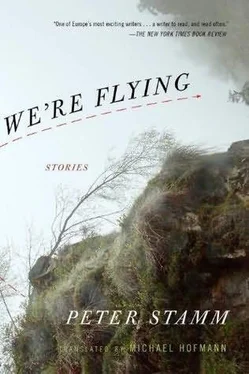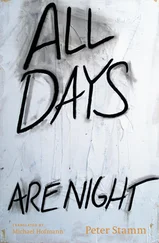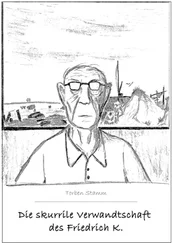Peter Stamm - We're Flying
Здесь есть возможность читать онлайн «Peter Stamm - We're Flying» весь текст электронной книги совершенно бесплатно (целиком полную версию без сокращений). В некоторых случаях можно слушать аудио, скачать через торрент в формате fb2 и присутствует краткое содержание. Год выпуска: 2012, Издательство: Other Press, Жанр: Современная проза, на английском языке. Описание произведения, (предисловие) а так же отзывы посетителей доступны на портале библиотеки ЛибКат.
- Название:We're Flying
- Автор:
- Издательство:Other Press
- Жанр:
- Год:2012
- ISBN:нет данных
- Рейтинг книги:5 / 5. Голосов: 1
-
Избранное:Добавить в избранное
- Отзывы:
-
Ваша оценка:
- 100
- 1
- 2
- 3
- 4
- 5
We're Flying: краткое содержание, описание и аннотация
Предлагаем к чтению аннотацию, описание, краткое содержание или предисловие (зависит от того, что написал сам автор книги «We're Flying»). Если вы не нашли необходимую информацию о книге — напишите в комментариях, мы постараемся отыскать её.
comes a trove of stories from the Swiss master Peter Stamm. They all possess the traits that have built Stamm’s reputation: the directness of the prose, the deceptive surface simplicity of the narratives, and deep psychological insight into the existential dilemmas of contemporary life. Stamm does not waste a word, nor does he spare the reader’s feelings. These stories are a superb introduction to his work and a gift for all those who have come to regard his fiction as a precise rendering of the contemporary human psyche.
We're Flying — читать онлайн бесплатно полную книгу (весь текст) целиком
Ниже представлен текст книги, разбитый по страницам. Система сохранения места последней прочитанной страницы, позволяет с удобством читать онлайн бесплатно книгу «We're Flying», без необходимости каждый раз заново искать на чём Вы остановились. Поставьте закладку, и сможете в любой момент перейти на страницу, на которой закончили чтение.
Интервал:
Закладка:
On the glass door of the little porter’s house was a map of the premises. Below it was a list of numbers in case of emergency: fire, police, ambulance, and a number for the administration. In a transparent document wallet next to that was a letter from the administrator. He wrote to wish all the tenants a happy holiday, with many happy returns for the New Year. The letter was decorated with an illustration of a fir twig and a candle.
Time was, hundreds of people had worked in the factory, but after production and development had been contracted out abroad, the industrial park emptied, until there were only the two porters left. The manufacturing company had transformed itself into a shell, and moved into offices near the station. The old brick buildings on the lakeshore were left deserted for a while, and then rented out piecemeal. Artists, graphic designers, and architects were now working in the labs. An ex-employee opened a little bar in the weighing room, where we sometimes met at lunchtime, for coffee or a sandwich. A violin maker and a furniture maker set up their workshops in the old production halls. A couple of start-ups that no one knew what they did had leased space. There were rooms that people moved into and then vacated almost immediately.
The lakeside location was nothing short of spectacular, and every couple of months the newspapers would run stories about ambitious redevelopment plans for luxury apartments or a casino or a shopping center. But the necessary investors never came through. We were all on short-term leases, which were regularly extended each time one of these projects went down the tubes. Sometimes the administrator would show up with a bunch of men in dark suits. We’d see them standing around outside, and with sweeping gestures tear down the buildings and run up new ones. Whichever porter happened to be on duty followed them at a distance across the site, and only stepped up when there was a door that needed unlocking. To begin with, these tours had given rise to wild, panicky rumors and speculations, but by now no one seemed to think anything would ever change.
When I got to the office in the morning, one of the porters was always there. Biefer generally sat in the lodge—which was glazed on three sides—smoking his pipe and reading the paper. Sandoz preferred to stand outside—even when it was well below freezing—with his hands in his coat pockets.
Earlier, they had both delivered the mail, but since we now all had mail boxes, all they did was take in occasional parcels or tell the bicycle messengers where our studios were. They took down the numbers of illegally parked cars, and sometimes you could see one or the other of them walking around the site with a huge bunch of keys in one hand and a pointed stick in the other, to scrape the litter away from the disused rails. Mostly, though, they would be at the main entrance, which was now always open, quietly overseeing the comings and goings on the site.
Biefer and Sandoz were never there together. There was a shift change at noon, and they seemed to be at pains never to meet. In the beginning, I couldn’t tell them apart, even though they could hardly have been more different. It was only superficially that there were similarities, both of them being short and squat and thinning on top. They wore blue coveralls, and in bad weather Sandoz added a black coat and a leather hat. He came from the French part of Switzerland, and—even though he’d been working here for over thirty years—spoke in heavily accented German. He was a moody fellow, there were days when he’d chatter away, and others when he’d barely get a word out, and would act as though he’d never seen you before when you said hello. Biefer, by contrast, was a local and almost exaggeratedly friendly. Whenever I ran into him, he would ask about my children, whom he’d seen once or twice, no more. We would talk about the weather and football and communal politics—not often about himself or his family. Biefer occasionally referred to his wife, but only once did he tell me about his two sons, who were both living abroad.
One cold foggy morning, maybe two months ago, Biefer stopped me. From a distance I could make out a fuzzy outline beside the porter’s lodge, and I assumed it was Sandoz. When I was a lot closer, I saw it was actually Biefer. I waved to him, but he held up his hand like a traffic policeman. I pulled over in front of him, and he asked me if I could help him with something. I asked what it was about. Not here, he said, oddly conspiratorial, and turned around.
I had never seen inside the porter’s lodge. In spite of the large windows that seemed to bulge outward, the room was cozy enough. A small oil stove produced a dry heat, and there was a sweet smell of pipe smoke. Biefer sat down at his desk and opened a drawer. He pulled out a worn-looking folder and placed it, closed, in front of himself. Then he got up and brought, not asking, two cups of watery coffee. He gave one to me, and pointed to a plate with cake on his desk.
Gingerbread, he said. If you like that kind of thing.
There was only one chair. Biefer had sat down, and I stood behind him in the shadow, looking down at his rather squat head and the strands of gray hair between which one could see plenty of pinkish scalp. He filled his pipe but didn’t light it. He didn’t seem to know where to begin. He made a couple of false starts, got tangled up, coughed. Perhaps he was distracted by having to wave to people who were arriving on the site. He said he had once upon a time been a baker, but was forced to switch jobs because he developed an allergy to flour. He had always enjoyed travel, whereas sport held no interest for him. Except for soccer, that is. He said he had married young, which had been the way, back then. He didn’t regret anything. He said that several times. He didn’t regret anything.
After he had been talking like that for a while, I finally realized what was going on. At the end of the year, when he was due to retire, Biefer was planning to emigrate to Canada and open a bed-and-breakfast there. Why Canada? I asked, but Biefer ignored me. He talked about the visa application he had submitted a few months ago, some points system in which his training and knowledge of French and English all counted in his favor, along with his age and financial status. Then he had got a letter back from the Canadian embassy in Paris, which he didn’t understand. He said he hadn’t spoken French since school, which was now fifty years ago. For a few months he had been taking English lessons, but he was probably too old to learn a new language. He opened the buff folder, pulled out the top sheet of paper, and hurriedly slammed the folder shut. He handed me the letter. In fussy legal French, the applicant was required to complete his dossier by supplying an itemized account of his personal wealth, complete with documentary proof, all to be supplied on the same day. When I explained to Biefer what it was about, he seemed relieved. He asked me not to breathe a word of his plans to anyone, and least of all to Sandoz.
I had almost forgotten this when Biefer hailed me the next time, a couple of weeks later. He was looking terribly mysterious, and waved me to follow him into the porter’s lodge. It was shortly before Christmas, on the desk was a frail assemblage of fir twigs, two shiny silver Christmas tree ornaments, and a stout candle that hadn’t been lit. Beside it was the buff folder. Biefer opened it, pulled out a sheet of paper, and, beaming, handed it to me. His visa application had been approved. He thanked me for my help. I said I hadn’t done anything. He hesitated, then he opened the folder again and left it open between us. On top was a red envelope from a photo shop. Biefer pulled out a sheaf of pictures and laid them carefully side by side on the table. The photographs—which were barely distinguishable one from the next—showed forest, low trees and bushes, and sometimes a gravel track in the foreground. Biefer’s hands hovered over the prints, he was like a soothsayer trying to predict the future from a deck of cards. This was his land, he said finally, in Nova Scotia. He took some papers out of the folder and spread them out in front of us, a contract of sale, a passport and flight ticket, tourist brochures, and postcards. At the bottom of the folder lay a poor photocopy of a surveyor’s map, on which a lumpy-looking lake and a few plots of land were sketched in. One of the plots was carefully marked in red. In the middle were two rectangles in pencil, under them were the smudged traces of earlier outlines that had been rubbed out. This was where he was going to build his house, said Biefer, a blockhouse with ten guest bedrooms and a big day room, and his apartment upstairs. The smaller rectangle was the garage.
Читать дальшеИнтервал:
Закладка:
Похожие книги на «We're Flying»
Представляем Вашему вниманию похожие книги на «We're Flying» списком для выбора. Мы отобрали схожую по названию и смыслу литературу в надежде предоставить читателям больше вариантов отыскать новые, интересные, ещё непрочитанные произведения.
Обсуждение, отзывы о книге «We're Flying» и просто собственные мнения читателей. Оставьте ваши комментарии, напишите, что Вы думаете о произведении, его смысле или главных героях. Укажите что конкретно понравилось, а что нет, и почему Вы так считаете.







![Brian Jacques - [Flying Dutchman 01] - Castaways of the Flying Dutchman](/books/128851/brian-jacques-flying-dutchman-01-thumb.webp)




